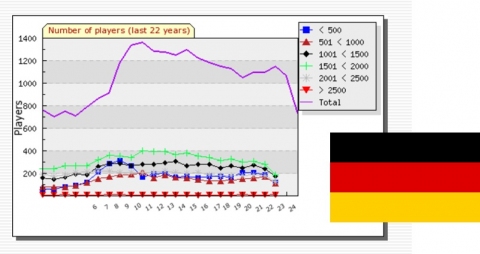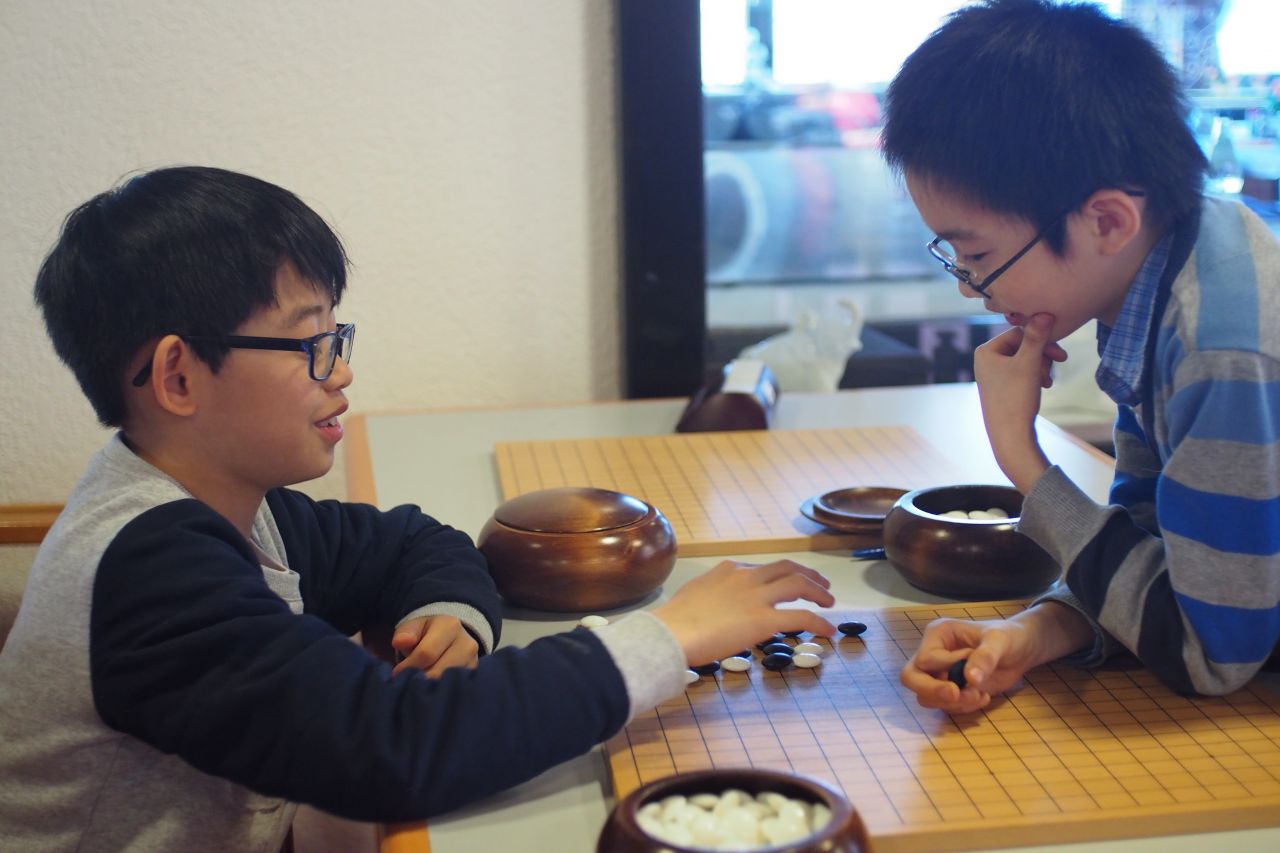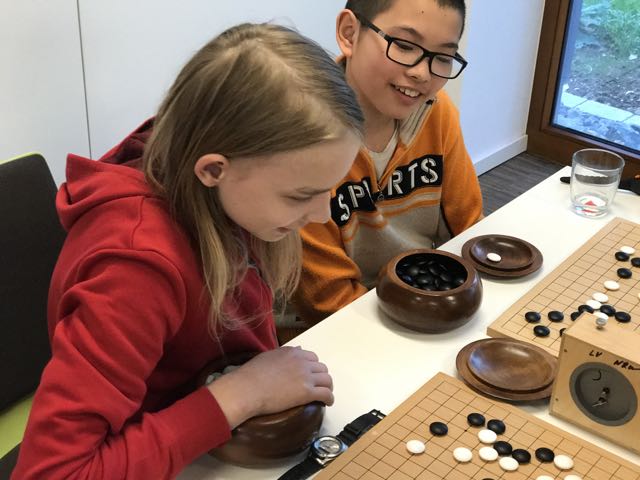
Youth System and Events
Q: How many young active players you have now?
In Germany, there are around 200 kids participating at least from time to time in tournaments. 100-150 kids take part at the school team championship, the Hans Pietsch Memorial. Around 50 come to the German Youth Go Championship, a similar number of players competes regularly in the German Youth League (online).

The numbers have risen in the last years, particularly for the German Youth Championship which had only a few participants until 2012, but also for the overall numbers. One reason is that we were able to tap into the Chinese community in Germany and so we now have quite a few promising young players of Chinese origin: one of them will represent Germany at the next World Youth Goe Championship.
Q: Who are the instructors, where are the clubs?
Besides many local instructors that teach Go to small groups of children we have a few outstanding teachers that teach Go semi-professionally or professionally and to large numbers of students. In the last years, e.g., Kalli Balduin in Berlin, Stefan Budig in Hamburg, Helmut Heidrich in Ratingen, Heinrich Walter in Langerwehe, Manja Marz in Jena, Ying Cheng in Düsseldorf and Klaus Flügge in Munich should be mentioned. (And definitely some more, but I wanted to keep the list short.) Some of them teach a hundred children or more each year.
Very recently there is also the Jena International Go School, led by Manja Marz and Kim Youngsam where some of the best kids in Europe study.
Q: What kind of official events your federation organizes for youth?
- Youth league: an online league that runs all year round where kids who are strong enough can participate. Games are often reviewed by strong players.
- German Youth Go Championship: once a year taking place at different locations with titles in three age categories.
- Hans Pietsch Memorial: German school team championship and tournament, organized by Go4School e.V. with teams of three kids each competing with each other. Attracts regularly more than 100 players.
- Regular meetings of the German youth, e.g. during the World Youth Goe Championship 2018 in Bacharach.

Go Future – The Youth Promotion System in Germany
In Germany, like in many other countries, we have the problem that children who learn Go get bored at some point when they do not have equally strong children to play with anymore. Playing with adults is often not an alternative for them, either because it is too boring to play with them or because they are still too strong. Outside East Asia, the density of Go playing kids, however, is very low. The closest child of the same level might be living a few hours drive away.
Another problem was that many kids did not have a Go teacher in their town making it hard for them to become stronger. Finally, parental support was often small, since parents of talented children did not know Go and thus did not even notice the talent of their kids.
For these reasons, most promising kids stopped playing Go again. This was a severe problem since the total number of active Go players in Germany is anyway still comparatively small.
To overcome these problems, five years ago we started in Germany a project that was meant to help young players to play with other kids and get help with learning Go. The key idea was to introduce a Youth League and a national youth team, both online. The target group were all talented kids in Germany (and some neighbouring countries). The project was meant to solve all of the above problems:
- Being admitted to the Youth League was a major achievement and the parents thus noticed their children's talent which made them much more supportive. When a child could enter the national youth team, that was an even bigger success.
- Since children could play now against similarly strong children in the league, their enjoyment of the game increased.
- We recruited strong German amateur players to review games of the Youth League, so the children could learn efficiently.
- The matches of the national youth team built a strong team spirit and helped to form a community.
- Publicity following successes of the national youth team attracted more young players.
- Moreover, we organized regular meetings (at least once a year) for all kids, so quite soon the children became friends and a community started to form that made it much more attractive for kids to participate also at other Go events: many kids were looking forward now to meet their friends at regular Go tournaments (where most participants were adults), so the general participation in Go events also increased.
- Enhancing the base of young Go players and integrating them better into the Go community
- Improving the Go strength of our young players
- Guiding young Go players to become Go teachers
- We observe more kids to keep playing Go. Fewer kids drop out.
- The kids made friends with each other, forming a strong community.
- A statistical analysis has shown that the young Go players increased their playing strength on average by around 5 kyu levels more when they took part in the Youth League (as compared to equally strong and equally old players who were not admitted, e.g., because the system was not in place yet).
- Participation of kids at real-life tournaments also went up, mainly because of the stronger community and better support of parents: the German Youth Championship, e.g., had only 6 participants in 2012, but over 50 in 2018.
- The current German champion (Jonas Welticke, 6d) as well as all German Youth Champions of the last years had been playing in the Youth League.
- Several former youth league players are already working as Go teachers or in other responsible positions at Go associations.